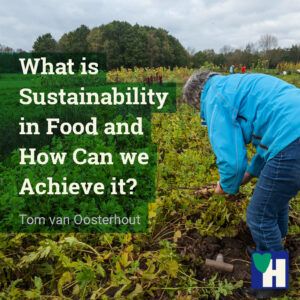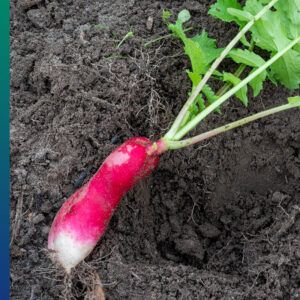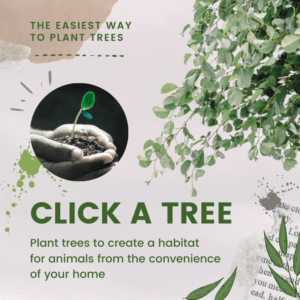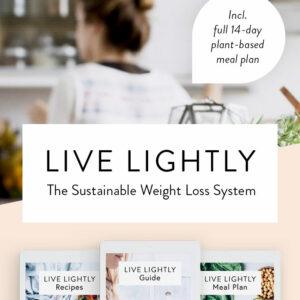
What is sustainability in food and how can we achieve it, is the central question I addressed in my previous 2 articles. In this article, I will explain why governments, the agrifood industry, supermarkets, and scientists, do a lousy job when it comes to the citizen’s sustainability agenda.
In my first article, of this series of 3, I argued that we don’t really suffer from food anxiety depression.
In my second article, I stated that in general, we consider our food to be safe.
Moreover, food is tasty and cosy. We enjoy our food. And dining together with family and friends are life’s highlights. Food also keeps our engine running.
Some of the links are affiliate links. As an affiliate associate, we earn a commission when you purchase any of the products offered through the shared links at no extra cost for you. This helps us maintain this website.
Table of contents
What is sustainability in food?
In food, sustainability is related to many issues. Also to the attitudes of governments, the agri-food industry, supermarkets, and scientists. Unfortunately, they do not support a sustainable food agenda.
Contradictory concerns

I think our trust in food is highly related to these positive associations. We don’t trust food because we are fond of farmers. Nor do we trust food because we appreciate the shareholders of supermarkets. We trust food because we enjoy it that much.
The more we enjoy food, the more difficult it is for us to cope with all the contradictory concerns that are raised by the production and distribution of food. Most of these concerns have already been discussed in the 2 previous articles: health, animal welfare, environmental issues, biodiversity, landscape, fair trade, child labour, personal freedom, price, quality, and ethics.
In this article, I will discuss some of these issues again. And I introduce a new issue: how sustainable is the agenda of governments, the agri-food industry, supermarkets, and scientists.
Slim chances of food-borne infections
In 2002, in the Netherlands, a total of 2,800 cases of food-borne infections were officially registered. Most of the Dutch eat three meals a day. Given the sixteen million inhabitants of the Netherlands, this means there are 17,520,000,000 chances of a food-borne infection per year. This is slightly more than seventeen and a half billion.
This means that given the 2,800 cases a year, to be able to risk one food-borne infection in your lifetime, you must become at least 5,714 years of age. For some people, due to illness or old age, the chance of a food infection is of course much higher.
In reality, the chance to get a food-borne infection is totally negligible for healthy people. From this perspective, farmers, the food industry, and the authorities apparently do a great job when it comes to the control of food-borne infections.
Trust comes on foot and leaves on horseback

When it comes to food safety and our health, trust does indeed seem to play a key role. But trust ‘comes on foot and leaves on horseback.’ Building trust is difficult and it’s lost easily. This is because trust originates in a complex way and evolves constantly.
Moreover, compassion, transparency, and integrity – which in general play a major role in trust – are experiences that come with strong feelings. And it’s not always clear how we connect those feelings with food and our health or one of the other concerns related to the food we eat.
The feelings we associate with food seem to constantly compete with each other. We also tend to weigh collective and individual risks differently. It’s also a problem that more information does not lead to more trust. This is because our experiences with food generally give us the comfort of trust, give us the green light: my food is safe.
A consistent state of denial
However, citizens are not very satisfied when it comes to the protection of what they see as sustainability in food. This is caused by the consistent denial of any responsibility by farmers, the food industry, supermarkets, science, and the government when it comes to sustainability issues.
Moreover, they consistently support a non-sustainable policy agenda. To be able to pursue this agenda, they deliberately insult citizens. They project the food anxiety depression on citizens. A twisted idea that is justified by an even bigger lie: citizens are stupid, you cannot trust their judgment.

I will illustrate this insulting attitude with 2 examples. A short one and a longer one. The first and short, example is about the expressed reassurances of the food industry, the supermarkets, and the scientists that all residues of pesticides, herbicides, and fungicides are thoroughly removed from fruits and vegetables before being sold.
This ‘operation clean-up’ has, at least, two very severe consequences. The first is that all the unwanted residues end up in the public sewer system. Putting the bill of this ‘operation clean-up’ square in the hands of the taxpayers. The second consequence is that before ‘operation clean-up’ can do its proper job, biodiversity has already been dealt a severe blow.
What is Sustainability in Food?
Genetic manipulation of fruits, vegetables, and animals is an age-old technique. Most people know what grafting is, or cross-breeding. Nobody was ever upset about that. Nature also regularly surprises us by creating new types of fruits and vegetables. Darwin discovered that animals are also genetically manipulated by nature.
Genetic manipulation by nature or grafting is however a totally different issue compared to genetic manipulation in the laboratory (generally known as GMO = genetically manipulated organism). GMO’s are not what citizens appreciate as sustainability in food.
The laboratory type of manipulation is promoted with arguments that this will enable more and bigger yields and can make fruits and vegetables resistant to diseases and bacteria. However, manipulation of genes in the laboratory is undesirable for several reasons.
Dependence of large multinationals
The genetic manipulation of fruits and vegetables is entirely controlled by large multinational companies. The Europe-based company Bayer, who bought the American company Monsanto in 2018, is worldwide the most powerful of these companies. Monsanto has been monopolizing the seed market worldwide for decades.
By genetically manipulating, and patenting their seeds, they reinforce their position in the market. Until now, the entrance of these seeds has been stopped in Europe by a strong coalition of (mainly small) farmers. The farmers complain that they have no freedom of choice anymore.
Boundless GMO’s threaten farmers and crops

When GMO’s grow on land, they know no boundaries. There is a legal and agricultural problem with these boundless GMO’s. The legal issue is that you cannot prove that your crops are not grown with patented seeds from Monsanto/Bayer.
Moreover, they take legal action against farmers who have crops on their land where their Monsanto/Bayer seed can be demonstrated. The farmer has to prove that it is not intentional and not Monsanto.
The agricultural problem is obvious. When you try to grow, for instance, organic cereals, how will you be able to prevent the GMO-cereal seeds of your neighbour from mixing with your organic ones?
How governments and the agrifood industry support world famine

Downright hypocritical is the argument that GMOs can end famine in the world. One billion people still suffer from structural famine. This famine is caused by the combination of a lack of political will and one-sided business concerns.
Both Europe and the USA subsidize their agriculture and levy advance taxes and impose strict rules on the import of agricultural products. These restrictions mainly affect poor developing countries.
The abolition of these subsidies, taxes, and regulations can end famine worldwide overnight. The hypocrisy of governments and the agrifood industry is even more apparent when we consider that food waste in the USA passed its 50% mark and is in Europe 35-45%.
We rule with our wallets and govern with our votes

The best way to counter the insults of governments, the agrifood industry, supermarkets, and scientists is by buying organic products. We can rule with our wallets.
The next best thing is to vote for those politicians that support sustainable policies. These politicians are often dismissed as liberal or left-wing, but as a matter of fact, they are conservative. As far as they are in favour of healthy lives, biodiversity, a clean environment, etc. All those beautiful things we are at risk of losing.
Our fear of food is a fairy tale. If there’s anything we’re depressed about, it’s the lack of compassion, transparency, and integrity from those who try to impose the food anxiety depression. Let’s fight the real depressions opposed on us by governments, the agrifood industry, supermarkets, and scientists.
Do you share the food anxiety depression or do you want the food chain to be more sustainable? Please tell us in the comment box.



Hi, Tom.
It is again a great article! I really can say I am so fed up with the lies of our governments. For me, it is customary to buy real organic food, vegetables, fruits, oils, seeds, meats, wine, and beer. We can not control as long we are not creating our own vegetable garden. Most of us can’t do it.
I know lots of people who don’t even think about where their food is coming from. That is a real problem. If we as consumers are not informed by investigating the internet and organizations trying to notify us, we will not know. There are too many ignorant people on this planet. We have to reach out and let them know. I am so fed up with the politics and the ignorance of most people.
Your article is very thoughtful written, and I am going to spread it around. 🙂
Hi Sylvia,
Thank you for your compliments. And for spreading my article around. That’s a great way to get the message across.
The other day I got into a discussion with a friend of mine on Facebook about getting the message across. However, he didn’t do what you did, you call for people to act. He only asked people to listen, and to vote.
Of course, to listen and to vote are important as well. But it’s as the English proverb goes: The proof of the pudding is in the eating.
You and I would of course paraphrase this as: The proof of the organic pudding is in eating organic. My friend concluded that we still have a long way to go. And I agree.
Although I often wonder which way we’re taking. Yesterday I finished an article in which I quoted another proverb: Practice what you preach. This sounds nice, but I’m afraid many people preach bad practices and practice bad preaches.
For now, stay safe, stay healthy.
Regards,
Tom